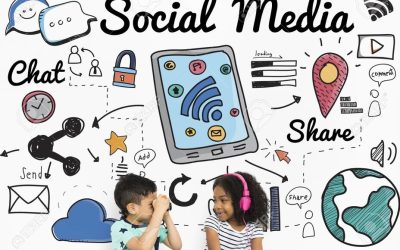Social media use and digital games have rapidly become popular trends amongst children, young adults and any age in between. As a result, a lot of research projects have focused on their impact on the academic performances of users. This article highlights the findings of some of these research products on the subject and the observations of our own team over a period of time.
A scan through a number of books and articles reveals different definitions of the terms ‘children’ and young adults. This can create confusion for readers if these terms are left unclarified in any piece of writing. For the purpose of this article therefore, the children to young adults range refer to the ages 4-20 years. Of course social media and game use can affect all ages in both negative and positive ways but the selected age range is important to us as majority of our students fall within this age bracket. IT IS therefore imperative to inform or echo this information to our existing and potential clients. Parents, teachers/tutors and students form an important team when it comes to education in general and every member of the team needs to be well informed about the dangers of this global ‘phenomenon’. Like any human situation, there are always the good, bad and even the ugly sides. The issues are presented and discussed below.
The ‘goods’
There is such a chorus of conclusions drawn from research and critical observations about the advantages children and young adults may derive from using social media and playing digital games. Here are some prominent views that can be linked to academic performance:
1. Social media and game use can improve literacy skills – the ability to read and write. The argument is that children in their early ages (3 years onwards) learn phonics, word recognition and therefore early year vocabularies. Older users get engaged with volumes of texts while on social media platforms. In this sense, these platforms are used as either the main or supplementary source of education.
2. Enhancing their social skills: As the name suggests, social media help users to be connected to other cultures. Children therefore are able to learn some of the elements of these different cultures, and by so doing, they can possibly integrate socially at functions or places where the population is culturally diverse. Further, as they grow older and become more mature, they may start to use social media to create global contacts for a number of purposes, such as for career and business information and network with important figures in business or political spaces.







0 Comments